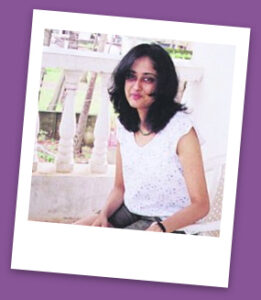Correspondence: ‘A different world in space and time’
March 1st, 2011A first trip to Britain for young Indian writer and English literature enthusiast Joyeeta Basu brought home the contradictions between London and her native Mumbai.
 It was in the winter of 2006 that I first visited London. It was my first international flight and I remember smiling through most of the eight-hour long journey from Mumbai.
It was in the winter of 2006 that I first visited London. It was my first international flight and I remember smiling through most of the eight-hour long journey from Mumbai.
I’ve always been fascinated with literature, especially British literature. It was my love for the subject that motivated me to complete my Masters in it. I was now anxious to see in person what had inspired literary greats like William Shakespeare, Lord Byron and John Keats.
However, as luck would have it, my first impression of London was a huge let-down.
Expecting to step into a postcard from the 1950s, I instead was confronted by a swanky underground station called Canary Wharf. I was surrounded by glinting skyscrapers, giant malls and plush eateries.
As I looked around despairingly, I wondered if erstwhile London had been swallowed by modernity. Where were the black cabs, old architecture and dated bridges? Were its remnants now confined to just museums and forgotten old by-lanes?
The second day thankfully, brought relief. As I walked down stone pavements in central London, I breathed in its history.
The classical architecture, 17th century churches and Georgian houses were just as I had imagined. Coming from a city of contrasts – Mumbai boasts the largest slum in Asia and one of the most expensive real estate – I thought London spelt uniformity. Its modern buildings were not in conflict with traditional ones but an extension of and in cohesion with them.
I felt like I had stepped into a different world in space and time. It was the first time I had gone abroad and it was fascinating to note how different civilisations had evolved into such strikingly distinctive selves. Though I spoke the same language and shared a colonial past, everything seemed unfamiliar.
 Mumbai had been an exciting and exasperating city in equal measure. The city could leave me feeling exhilarated and exhausted at the same time. I could step out from an air-conditioned boutique and on to third world rubble.
Mumbai had been an exciting and exasperating city in equal measure. The city could leave me feeling exhilarated and exhausted at the same time. I could step out from an air-conditioned boutique and on to third world rubble.
Somehow, I had thought it were things such as these that kept me humble and human. But I was fast realising that I didn’t need to see poverty around to feel for the poor. That life didn’t need to be hectic to feel alive. That another, less chaotic way was possible even for an emerging nation.
The next few days were spent visiting museums, taking tours and sampling world cuisine. I quickly learnt to stand on the right side of escalators and be precise with my change, words and manners. London seemed a lot calmer and gentler with its people than Mumbai.
Then I explored Scotland, Manchester, Dover, Canterbury, and other towns. I loved the dark, mystic air that hung heavy over the Scottish highlands and I loved the countryside. The moors, the heath, the rolling meadows, castles, woods and the rolled stacks of hay beside the motorways.
It was all breathtakingly beautiful. I finally saw what inspired Thomas Hardy to describe the heath so vividly and Jane Austin to create characters like Darcy and Elizabeth Bennet.
Then there was the English accent. Being brought up on American sitcoms, I found it difficult to grasp it at first. After I did, I learnt to enunciate my words. I also learnt to be punctual and stay true to my word. I learnt to shed my ‘chalta hai’ (anything goes) attitude and become more disciplined.
In the end, I realised while Mumbai is a fun city to be in, it was in London that I actually ‘grew up’ and came into my own.



